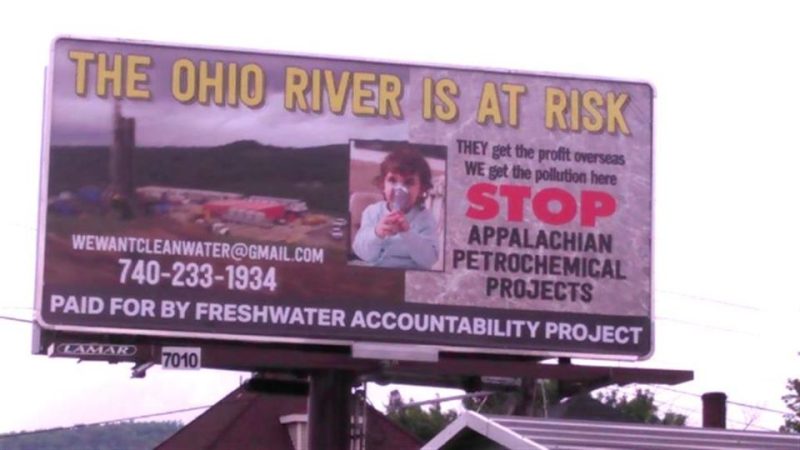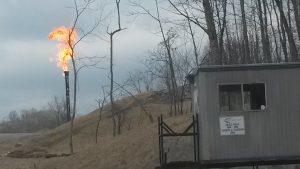
FreshWater Accountability Project (FWAP) was founded in 2012 in Southeast Ohio to protect freshwater resources and raise awareness of the dangers associated with the fracking industry. Fracking requires vast amounts of water to extract shale gas and oil, while producing almost the same amount of contaminated wastewater – wastewater that must go somewhere. FWAP advocates for responsible regulation and the development of sustainable alternatives, promoting a diversified, healthy economic future for communities suffering from major polluters. When Warren, OH, partnered with a wastewater company to send frack waste through the town’s sewage treatment plant, FWAP knew it was a violation of the Clean Water Act. They filed suit in federal court and won, halting the waste and protecting the water. By holding polluters accountable and advocating for environmental justice, FWAP aims to safeguard public health, preserve natural resources, and combat climate change.

Frack water leaked into water supplies pollutes them with toxics linked to higher birth defects and cancers. Radioactive particles in fracking and cracking emissions are linked to increased leukemia and respiratory illnesses. So when frackers obtained special permission from state agencies and began operating along southeast Ohio’s rivers, Lea Harper founded FWAP. The group, now 2,000-plus members strong, partners with ten other groups to defend the area’s residents from the life-sapping effects of fracking and ethane cracking. FWAP is part of a three-state coalition to prevent frackers from transporting their waste in river barges. It partners with Thriving Earth Exchange to monitor fracking emissions, has a grant from EPA to monitor air pollutant spikes and connect them to fracking activities, and with funding from the Community Foundation for the Alleghenies, has installed in-home air monitors and trained residents to collect data on toxins emitted during ethane cracking.